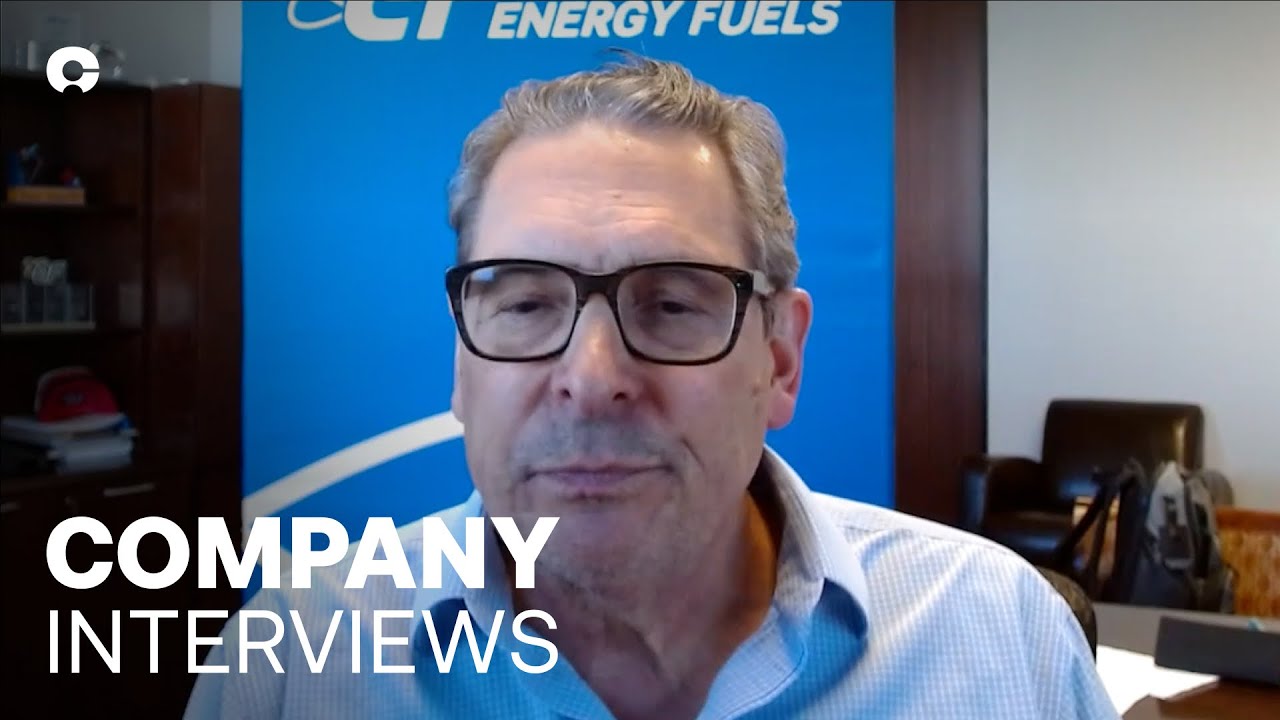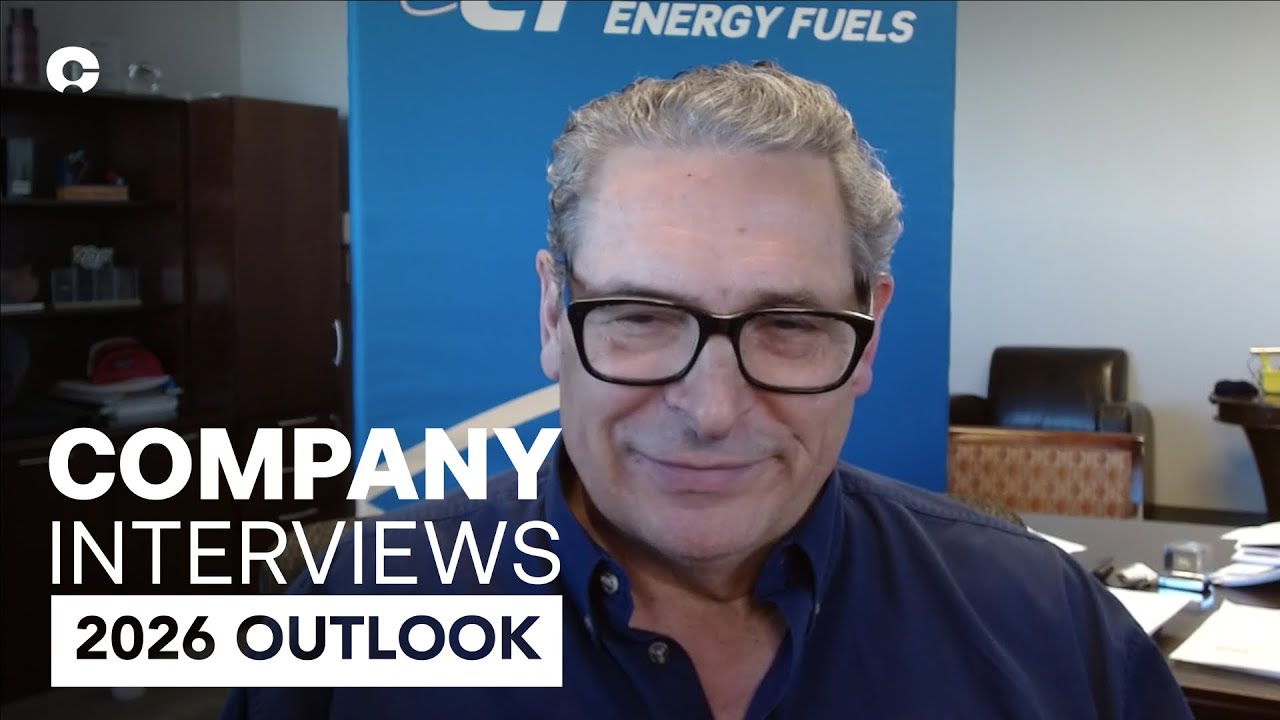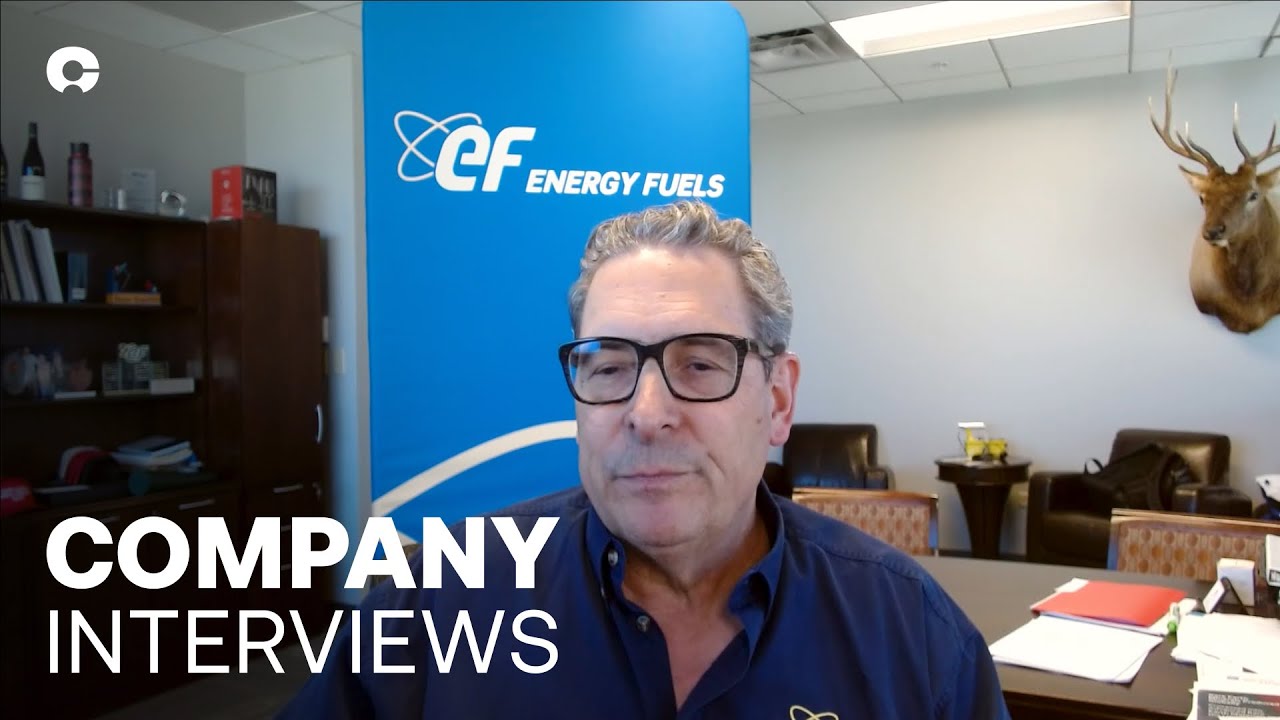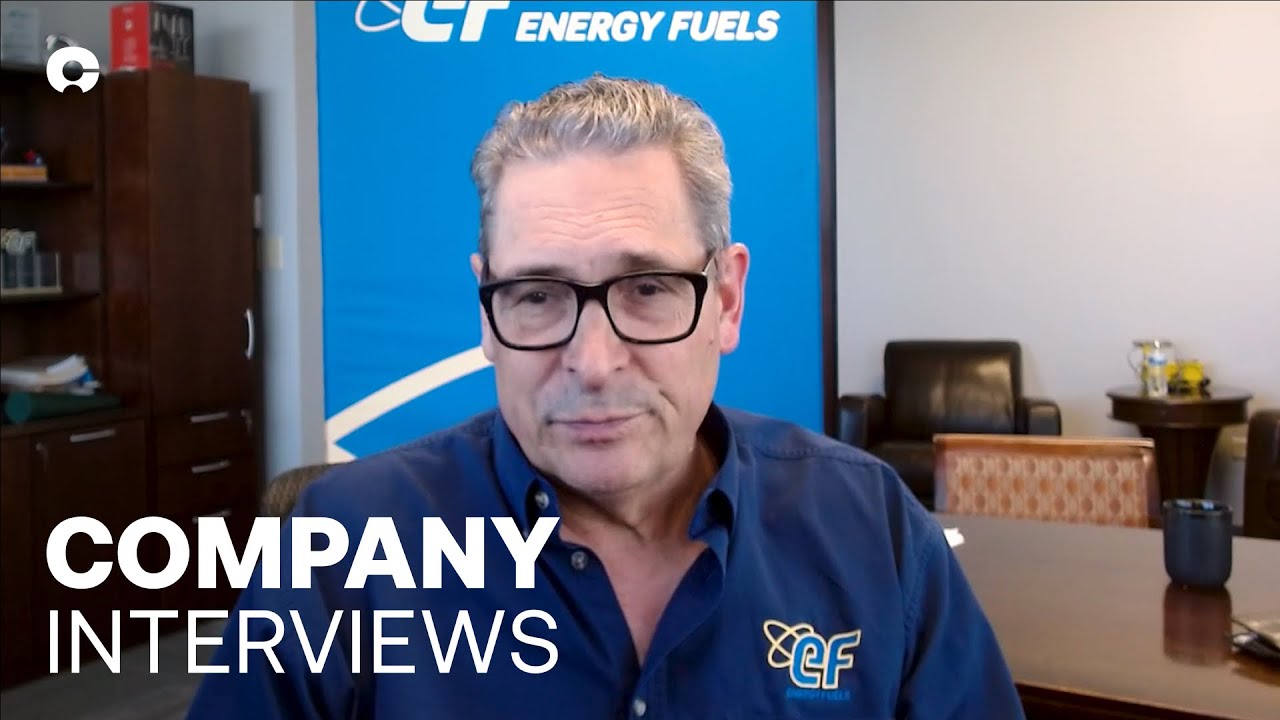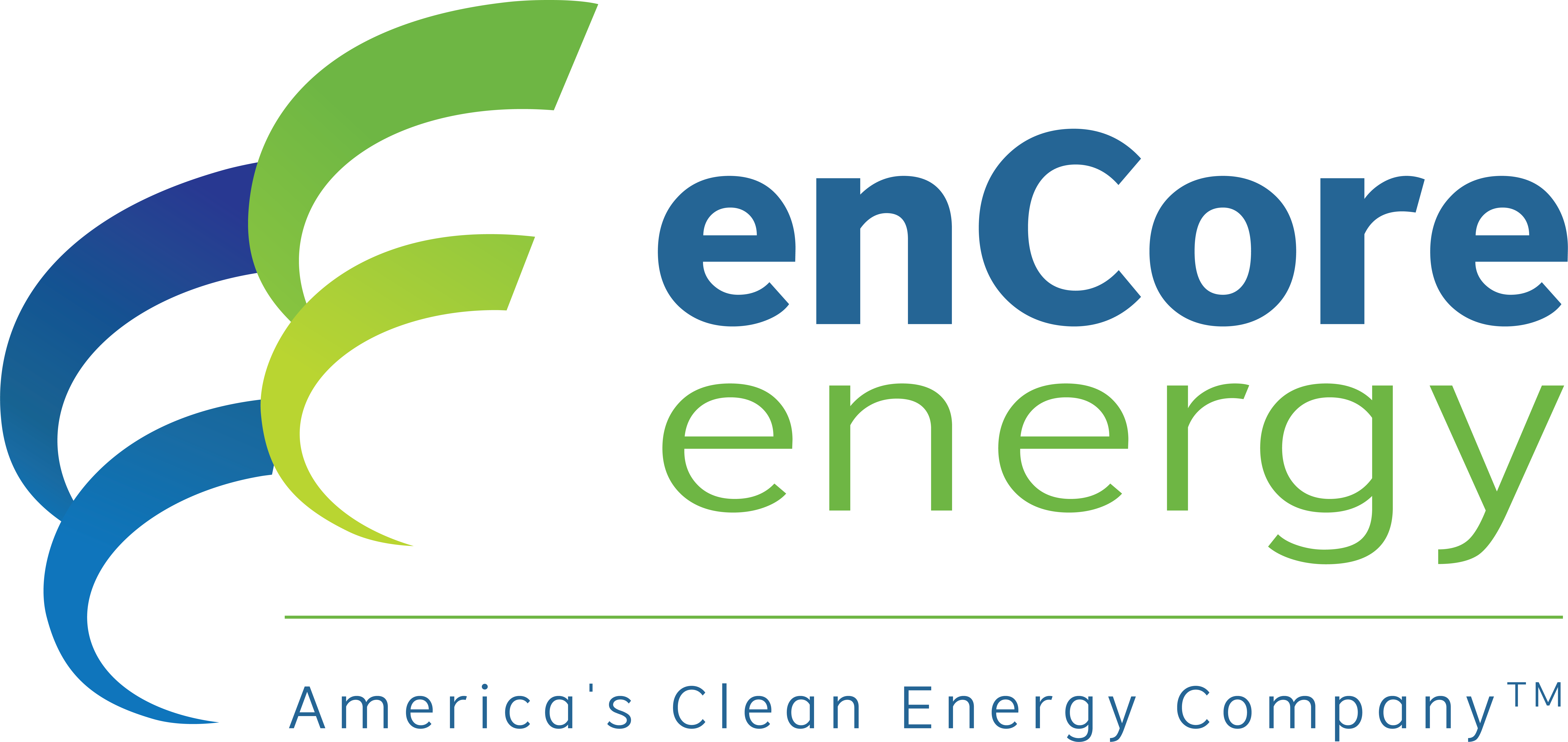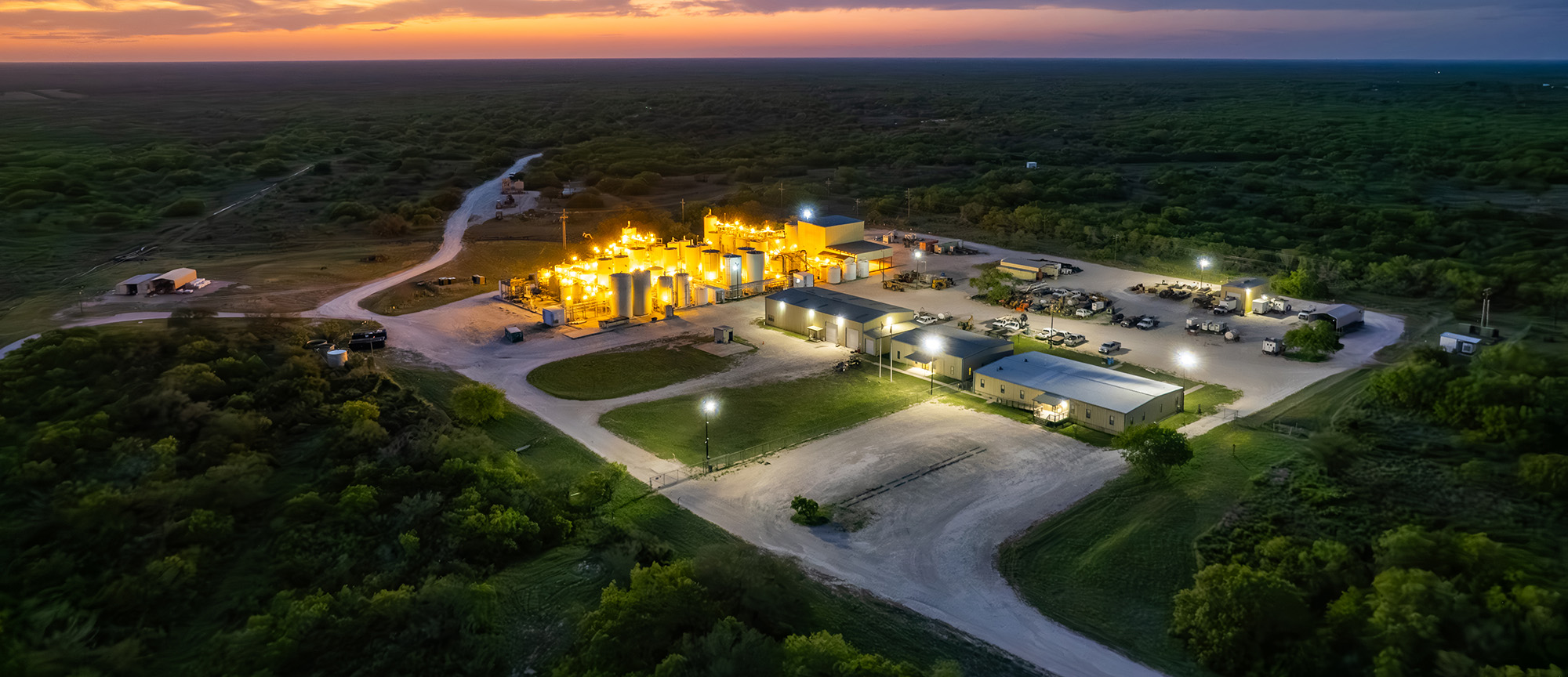Cameco Corporation
NYSE: CLOSED
TSE: CLOSED
LSE: CLOSED
HKE: CLOSED
NSE: CLOSED
BM&F: CLOSED
ASX: CLOSED
FWB: CLOSED
MOEX: CLOSED
JSE: CLOSED
DIFX: CLOSED
SSE: CLOSED
NZSX: CLOSED
TSX: CLOSED
SGX: CLOSED
NYSE: CLOSED
TSE: CLOSED
LSE: CLOSED
HKE: CLOSED
NSE: CLOSED
BM&F: CLOSED
ASX: CLOSED
FWB: CLOSED
MOEX: CLOSED
JSE: CLOSED
DIFX: CLOSED
SSE: CLOSED
NZSX: CLOSED
TSX: CLOSED
SGX: CLOSED



Energy Fuels

Crux Investor Index
9
–
Market Cap (USD)
4385058107
Symbol
AMEX:UUUU
Stage of development

Production
Primary COMMODITY
Uranium
Additional commodities
REE
Vanadium
Company Overview
Energy Fuels Inc. (NYSE American: UUUU; TSX: EFR) is a leading US-based critical minerals company focused on uranium production, rare earth elements, and heavy mineral sands. The company operates as the only conventional uranium producer in America and holds the White Mesa Mill in Utah, which is the only fully licensed and operating conventional uranium processing facility in the United States. Energy Fuels has produced two-thirds of all uranium in the U.S. since 2017 and holds more in-ground uranium resources than any other US producer.
The company has evolved beyond its uranium origins to become a diversified critical minerals producer. Energy Fuels is developing capabilities across uranium, rare earth oxides, vanadium, medical isotopes, titanium, and zirconium minerals. The organization maintains operations across the United States with mining assets in Colorado, Utah, Wyoming, and Arizona, plus international heavy mineral sands projects in Madagascar, Brazil, and Australia through joint ventures.
Article
No analyst notes
Opportunity
The investment opportunity in Energy Fuels centers on several converging market dynamics that favor domestic critical mineral production. The nuclear energy sector is experiencing renewed growth driven by climate change initiatives and energy security concerns. The current uranium price environment presents challenges, with industry experts noting that "the incentive price for uranium now is north of $100 a pound… it's not sustainable at $60," suggesting potential for significant price appreciation.
Geopolitical tensions have shifted US utility preferences, with companies now seeking more domestically-sourced uranium material due to ongoing conflicts and dependence on Russian and Kazakh sources. This creates a substantial opportunity for Energy Fuels as the dominant US uranium producer. The company's position is further strengthened by recent federal policy support, including President Trump's Executive Orders expanding the U.S. nuclear fuel and nuclear energy industries.
The rare earth elements market presents another significant opportunity. Chinese neodymium-praseodymium prices have risen by 19.5% in recent months, indicating strengthening demand. Energy Fuels is positioned to benefit from this trend as one of only two commercial-scale U.S. producers of high-purity rare earth oxides and the only U.S. company producing separated heavy REE oxides from commercial rare earth ores.
Summary
Management Team
The company is led by Mark Chalmers, who serves as President and Chief Executive Officer since February 2018. Chalmers brings extensive experience in mining and mineral processing, having previously served as Executive General Manager of Production for Paladin Energy Ltd., where he successfully managed uranium operations in Namibia and Malawi, achieving significant production increases while reducing operating costs. He possesses expertise in both conventional and in situ recovery uranium production methods and has consulted for major industry players including BHP Billiton, Rio Tinto, and Marubeni.
Chalmers is a registered professional engineer with a Bachelor of Science in Mining Engineering from the University of Arizona and previously served as Chair of the Australian Uranium Council for 10 years. The management team includes experienced professionals across legal, operations, and business development functions, with David Frydenlund as Executive Vice President and Chief Legal Officer, Tim Carstens overseeing Heavy Mineral Sands Operations, and Curtis Moore leading Marketing & Corporate Development.
Growth Strategy
Energy Fuels has implemented a multi-pronged growth strategy focused on expanding production capacity and diversifying revenue streams. The company's strategy centers on "building a world-scale, world-class, low-cost critical mineral hub unlike any other publicly traded company" by leveraging uranium expertise and expanding into rare earth elements and heavy mineral sands.
The Pinyon Plain mine in Arizona serves as a cornerstone asset, producing record monthly output of 258,745 pounds of U3O8 in May 2025 at an average grade of 2.14%, representing a 71% increase over the previous month's record. Management characterizes this mine's performance as "a once in a lifetime event" with grades of 2.23% uranium oxide, positioning it among the highest-grade uranium mines in U.S. history.
The company is advancing several strategic projects including the Roca Honda mine in New Mexico, which was added to the "FAST-41" federal permitting dashboard and shows a Measured and Indicated Mineral Resource of approximately 17.6 million pounds of eU3O8. The Donald Project in Australia received final major regulatory approval in June 2025, enabling a potential final investment decision as early as the end of 2025.
Charts
Details
Financial Overview
Energy Fuels maintains a robust financial position with minimal debt and substantial liquidity. As of June 30, 2025, the company reported working capital of $253.23 million, including $71.49 million in cash and cash equivalents, $126.41 million in marketable securities, and zero debt. This represents an improvement from the previous quarter when working capital stood at $214.61 million as of March 31, 2025.
The company's product inventory carries a market value of approximately $56.25 million at August 2025 commodity prices, while the balance sheet reflects inventory at historical cost of $43.00 million, indicating $13 million of additional liquidity. During Q2 2025, Energy Fuels reported a net loss of $21.81 million or $0.10 per share, representing an improvement from the Q1 2025 net loss of $26.32 million.
The company significantly increased its 2025 uranium production guidance by 22% and finished goods inventory guidance by 193%. Management projects sustained low unit costs at the Pinyon Plain mine of approximately $23-30 per pound U3O8, providing substantial margins at current uranium prices. Revenue generation is expected to accelerate as upcoming contract deliveries and potential spot market sales during the remainder of 2025 are expected to provide substantial cash flow starting this year and reaching full capacity in 2026.
Risk Factors and Mitigation
- Commodity Price Volatility: Uranium and rare earth element prices are subject to significant fluctuations based on global supply-demand dynamics and geopolitical factors, with current uranium spot prices around $60-65 per pound remaining below the estimated incentive price of $100+ per pound needed for sustained industry investment. This is mitigated by strategic inventory positions with pricing discipline and diverse commodity exposure across uranium, rare earths, and heavy mineral sands.
- Regulatory & Permitting Risk: Mining operations face extensive federal and state regulatory oversight, with potential delays in permitting processes affecting project timelines, while environmental regulations and community relations present ongoing compliance requirements. The company addresses this through established cooperative agreements including landmark Navajo Nation agreement with major regulatory milestones achieved.
- Technical & Operational Risk: Mining operations face inherent risks including equipment failures, geological uncertainties, and production interruptions, while the company's concentration of high-grade production at Pinyon Plain creates dependency on a single asset's performance. This is mitigated through diversified uranium asset portfolio across multiple states with technical expertise in both conventional and in-situ recovery methods, plus operating the only conventional uranium mill in the US.
- Environmental & Social Risk: Operations require ongoing environmental compliance and maintaining positive relationships with local communities and indigenous groups to ensure social license to operate. The company maintains established cooperative agreements with indigenous communities and comprehensive environmental management programs.
- Market Competition Risk: Intense competition from international uranium producers, particularly from Kazakhstan and Russia, affects market dynamics, while rare earth element production faces competition from established Chinese suppliers who control significant market share. This is addressed through federal policy initiatives favoring domestic production, geopolitical tensions increasing utility preferences for domestic suppliers, and integrated uranium-rare earth production providing competitive differentiation.
- Financing Risk: Expansion projects require substantial capital investment, with potential funding gaps between projected costs and current balance sheet resources for major developments like the White Mesa Phase 2 expansion. The company maintains strong working capital of over $250 million with no debt providing financial flexibility and demonstrated capital markets access.
- Execution Risk: Coordinating multiple projects across different commodities and regulatory environments while managing complex operational and market dynamics requires sophisticated execution capabilities. This is mitigated through technical expertise across multiple extraction methods, diversified asset portfolio reducing single-project dependency, and integrated production approach across the uranium-rare earth value chain.
- Supply Chain & Geopolitical Risk: Dependence on international supply chains and exposure to geopolitical tensions could disrupt operations or market access. The company's domestic focus benefits from federal policy support for domestic production, reduced exposure to international supply chain disruptions, and strategic positioning to serve utilities seeking domestic supply security.
Conclusion
Energy Fuels represents a compelling investment opportunity in the critical minerals sector, positioned to benefit from multiple favorable trends including nuclear energy growth, supply chain reshoring, and rare earth element demand. The company's status as the leading US uranium producer, combined with its unique processing capabilities and diversified commodity exposure, provides significant competitive advantages.
The exceptional performance at the Pinyon Plain mine demonstrates the quality of the company's uranium assets, while regulatory approvals for key projects like Donald create near-term growth catalysts. Management's strategic vision of building an integrated critical minerals hub aligns with national security priorities and energy transition requirements.
The robust balance sheet provides financial stability and growth capital, while the improving operational metrics and production guidance indicate operational momentum. Although commodity price volatility and regulatory complexities present risks, the company's established market position, experienced management team, and alignment with federal policy priorities provide substantial risk mitigation.
For natural resource investors seeking exposure to uranium and critical minerals, Energy Fuels offers a unique combination of current production, development pipeline, and strategic positioning in high-priority domestic supply chains. The convergence of favorable market dynamics, operational excellence, and policy support creates a compelling investment thesis for long-term value creation.






.jpg)




